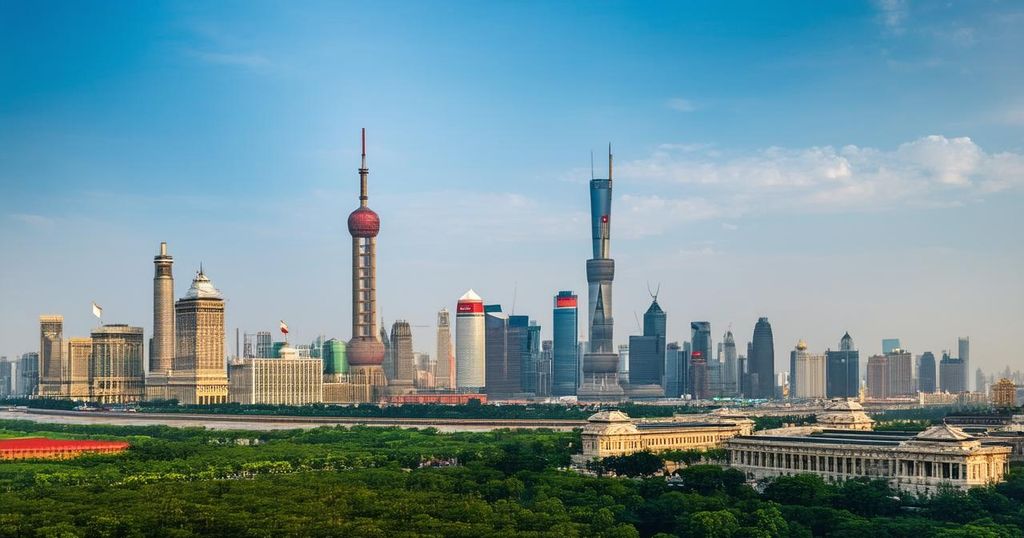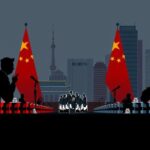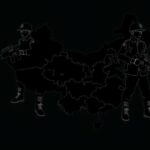Thaw in India-China Relations: Modi and Xi Meet at Brics Summit
Indian Prime Minister Narendra Modi and Chinese President Xi Jinping formally met on the sidelines of the Brics summit in Russia, signaling a thaw in India-China relations after years of military confrontations across their disputed border. Following an agreement for troop disengagement, both leaders pledged to resume dialogue, enhance trust, and stabilize their bilateral ties, emphasizing the relationship’s importance for global peace.
The recent meeting between Indian Prime Minister Narendra Modi and Chinese President Xi Jinping marks a significant thaw in relations between the two countries, four years after a deadly border clash in the Himalayas. Held on the sidelines of the Brics summit in Russia, this formal meeting followed a prior agreement regarding the disengagement of troops along the disputed 3,440-kilometer border. Both leaders expressed their commitment to restore dialogue and resolve outstanding issues between their nations. The meeting comes after decades of strained relations, exacerbated by skirmishes and military confrontations, most notably the Sino-Indian War of 1962 and the Galwan Valley clash in 2020, which resulted in numerous casualties on both sides. Diplomatic tensions have further strained economic ties, with India imposing scrutiny on Chinese investments and banning several Chinese applications. Despite these challenges, initial discussions for reconciliation began in 2022 during the G20 summit and subsequent meetings, leading to the current dialogue aimed at fostering stabilization in their relationship. According to Indian Foreign Minister S. Jaishankar, approximately 75% of border disengagement has been achieved, and both sides are now seeking to restore trust and normalcy. The Indian Army Chief also emphasized the importance of transparency and reassurance between the militaries to avoid further encroachments into buffer zones. The two nations have agreed to resume border patrols, returning to pre-2020 conditions. Both Modi and Xi highlighted the significance of maintaining a peaceful relationship, as they acknowledged the international community’s scrutiny over their interactions. Modi remarked on the vital importance of their relationship for global peace, stressing that mutual trust and respect should underpin their ties. Moving forward, special representatives will meet to address border issues, while their respective officials will work towards stabilizing and rebuilding bilateral relations. In conclusion, the recent Modi-Xi meeting reflects a renewed commitment to improving India-China relations after years of tension. With concrete steps taken towards disengagement and plans for further dialogue, the two leaders aim to forge a path toward greater cooperation and mutual respect amidst the complexities of their geopolitical landscape.
The India-China relationship has been complicated by territorial disputes, particularly the 3,440-kilometer border that both countries claim. Tensions have flared into military confrontations, most notably the 1962 war and the deadly 2020 Galwan Valley clash. Over the years, diplomatic relations have also been affected by India’s actions in Jammu and Kashmir and China’s reactions at international forums. Economic ties have similarly suffered due to suspicions regarding Chinese investments and geopolitical rivalry. Recent engagements indicate an effort from both nations to resolve these issues, highlighting the strategic importance of their relationship.
The meeting between Prime Minister Narendra Modi and President Xi Jinping signifies a crucial step towards de-escalating long-standing tensions between India and China. Both leaders have committed to restoring dialogue and addressing border issues, which reflects a mutual acknowledgment of the importance of their relationship for regional stability and global peace. Continued engagement and cooperation will be critical as they work towards a better understanding and resolution of their longstanding disputes.
Original Source: www.bbc.com








Post Comment